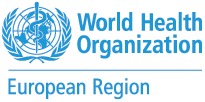
We are on the cusp of a digital health revolution yet millions risk being left behind
Statement by Dr Hans Henri P. Kluge, WHO Regional Director for Europe
Porto, 5 September 2023
Good morning from the beautiful city of Porto in Portugal.
I’d like to start by thanking our generous hosts, the Government of the Republic of Portugal, and in particular the Ministry of Health and my friend, the Health Minister, Dr Manuel Pizarro, as well as Professor Fernando Araujo, the Executive Director of the National Health Service.
Obrigado pela parceria (translation: thank you for your partnership)
As a leader and early adopter of digital health tools and interventions, Portugal was the natural choice to co-host this Second WHO Symposium on the Future of Digital Health Systems in the European Region.
I’m also pleased to announce we have just signed a letter of intent with the Portuguese Government, to open a new WHO Country Office right here in Porto. Among other things, the new office will be tasked with a special project on health technology and entrepreneurship.
I’m sure my Portuguese counterparts will say more on this in a moment.
We are on the cusp of a digital health revolution.
And as we race towards this digital future, we need to ask ourselves a few important questions:
Will its benefits be inclusive?
Will our data be safe and secure?
How will it affect the health workforce?
It is abundantly clear that digital health is the present and future of our health systems, so we MUST ensure that there are no winners or losers, that everyone benefits, and no one is left behind.
Today, WHO/Europe launches a landmark new report on the state of digital health across our Region.
It shows that while considerable advances in digital health have been made in recent years, there are significant challenges and gaps that must be addressed to unleash the full potential of digital tools and interventions to improve overall health and wellbeing, reduce the burden on the health workforce, and safeguard people’s privacy.
The European Region can – and should – be a digital health leader because we are starting from a strong position.
Our report shows that the vast majority of countries in the European Region already have a digital health strategy, use some form of electronic health records, and have legislation safeguarding the privacy of personal data.
But our analysis also reveals that only half the countries in the WHO European Region have policies to improve digital health literacy, leaving millions of people behind.
Access to digital heath tools is only useful if you know how to use them.
It is a sad irony that people with limited or no digital skills are often the ones who stand to gain the most from digital health tools and interventions – like the elderly, disabled or rural communities. Addressing this imbalance is necessary for the digital transformation of the health sector.
We also found that the COVID-19 pandemic accelerated the adoption of digital health tools, but this adoption was uneven and often on an ad-hoc rather than a long-term strategic basis.
A recurring trend was the lack of financial resources to fund the vital monitoring and evaluation of digital health interventions that is required to improve models and algorithms, and ultimately, patient care.
Only 19 countries have developed guidance on how to evaluate digital health interventions.
And with the rapid rise of artificial intelligence and Big Data, our report shows that only 60% of countries have developed a data strategy regulating the use of Big Data and advanced analytics in the health sector.
Yet artificial intelligence is reshaping the world as we know it – including healthcare. It offers unprecedented advances in health from more efficient diagnoses to safer treatments to better disease surveillance. It has the potential to enhance patient engagement in their own care, as well as increase the speed and reduce the cost of developing new pharmaceutical treatments.
But AI’s rise and adoption need to be carefully regulated and managed to ensure fairness and transparency, and this needs to be done by consensus, to avoid a ‘winner takes all’ scenario.
So, what do we need to fully realize the potential of digital health to make our health systems fit for the 21st century?
Firstly, we need to ensure that reliable, low-cost broadband can reach every household and every community across our Region. That is an absolute necessity.
Second, governments and health authorities must start viewing digital health as a strategic long-term investment, rather than a luxury for the few. Investing now will pay dividends later.
Third, building trust in digital health is fundamental to its adoption. Without it, the whole system fails. We will only be able to successfully implement digital health tools and tackle digital inequalities if patients, citizens, and health workers believe their data is safe and secure.
Finally, and perhaps most crucially, we need to see much more international collaboration and knowledge-sharing. Digital health tools including electronic patient records, need to be able to speak to each other across national and international boundaries – what we call interoperability – for them to be cost-effective and impactful.
So, in summary: connectivity, investment, trust, and cooperation.
If we collectively address these four points, we can – and will – take our digital health systems to the next level.
Thank you. Obrigado.
ENDS
This statement was delivered to the press gathered for the Second WHO Symposium on the Future of Health Systems in the Digital Era, in Porto, Portugal.
This information was brought to you by Cision http://news.cision.com
If you would rather not receive future communications from WHO Regional Office for Europe, please go to https://optout.ne.cision.com/en/yHmfAceN8VjfKstXz7AVJDdqqVF7su3yTvrA1rgrpeKrGSHJbQXUgmvwQgqSJs2diJfTBwfmHLcNAGBjhjduho4ncBHZ7s9RdK7GDL8i8QY55KKfaQbYCBps2p27QV4sSMg.
WHO Regional Office for Europe, Marmorvej 51, Copenhagen, 2100 Denmark




